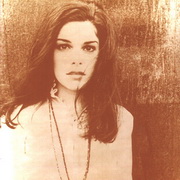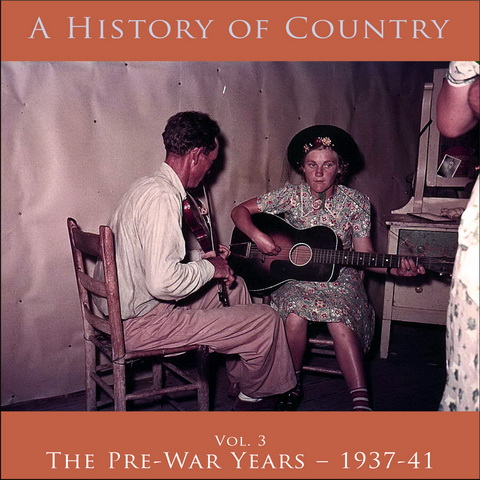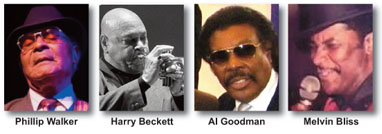Here are five more lesser-known originals, covered in four entries: Wild Thing, Sunny, Angel Of The Morning, Under The Influence Of Love and It May Be Winter Outside. Incidentally, look at the tabs on top to find an alphabetical index of Originals that have featured so far, with links to the relevant posts.
* * *
The Wild Ones – Wild Thing (1965).mp3
The Troggs – Wild Thing (1966).mp3
Senator Bobby – Wild Thing (1968)
Jimi Hendrix – Wild Thing.mp3
Marsha Hunt – Wild Thing (1971).mp3
 One of rock’s most iconic songs was written by actor Jon Voight’s younger brother, James Wesley, who took the name Chip Taylor. He had a prolific songwriting career before turning to recording records himself in 1971 as a country artist. The first version of Wild Thing, by the New York band The Wild Ones, was released in 1965. Headed by one Jordan Christopher, they are said to have been the houseband of what has been called New York’s first disco, The Office. Taylor wrote Wild Thing for them as a favour for A&R man Gerry Granagan.
One of rock’s most iconic songs was written by actor Jon Voight’s younger brother, James Wesley, who took the name Chip Taylor. He had a prolific songwriting career before turning to recording records himself in 1971 as a country artist. The first version of Wild Thing, by the New York band The Wild Ones, was released in 1965. Headed by one Jordan Christopher, they are said to have been the houseband of what has been called New York’s first disco, The Office. Taylor wrote Wild Thing for them as a favour for A&R man Gerry Granagan.
It’s not very good, certainly not in comparison to The Troggs version, which replaced the Wild Ones’ whistle interlude with an ocarina solo (the ocarina is an ancient ceramic wind instrument). Taylor has recalled that he wrote the song in a few minutes (“the pauses and the hesitations are a result of not knowing what I was going to do next”) and had a low opinion of it. Likewise, The Troggs recorded it in 20 minutes, during the same session that produced their follow-up hit With A Girl Like You. They worked from Taylor’s demo, rather than the Wild Ones’ version. Due to a licensing issue, The Troggs’ version of Wild Thing was released on two labels, Fontana and Atco. It is the only time a record has topped the US charts under the simultaneous banner of two labels.
Wild Thing was covered frequently after that. Jimi Hendrix famously set his guitar on fire at Monterey after playing his version of it. In 1968 the comedy troupe The Hardly Worthit Players released a version of Wild Thing being performed by “Bobby Kennedy”, with a producer giving him instructions. Robert F Kennedy was voiced by the comedian Bill Minkin (it’s a myth that it was Jon Voight). That novelty record was one of the last releases by the Cameo-Parkway label, a noteworthy footnote in light of the next song. Marsha Hunt’s version featured on the Covered In Soul Vol 2 mix.
Also recorded by: The Capitols (1966), The Standells (1966), The Kingsmen (1966), Manfred Mann (1966), Geno Washington & the Ram Jam Band (1967), The Memphis Three (1968), Fancy (1974), The Goodies (1976), The Runaways (1977), The Creatures (1981), The Meteors (1983), X (1984), Cold Chisel (1984), La Muerte (1984), Sister Carol (1986), Amanda Lear (1987), Unrest (1987), Sam Kinison with Jessica Hahn (1988), Cheap Trick (1992), Divinyls (1993), Stoned Age (1994), Hank Williams, Jr (1995), The Muppets (1995), Acid Drinkers (1995), Chip Taylor (1996), Popa Chubby (1996), Danny and the Nightmares (1999), Sky Sunlight Saxon (2008), Trash Cans (2010)
.
Evie Sands – Angel Of The Morning (1967).mp3
Merrilee Rush and the Turnabouts – Angel Of The Morning (1968).mp3
P.P. Arnold – Angel Of The Morning (1968).mp3
Skeeter Davis – Angel Of The Morning (1969).mp3
Nina Simone – Angel Of The Morning (1971).mp3
Juice Newton – Angel of the Morning (1981).mp3
 The one-night stand anthem was also written by Chip Taylor (perhaps the angel of the morning was last night’s wild thing). Indeed, he told Mojo magazine in its September 2008 edition that Angel is Wild Thing slowed down: “I heard some guy playing Wild Thing real slow on a guitar. It sounded nice. So I did the same, lifting one of my fingers off a chord to create a suspension.” He also credited the Rolling Stones’ Ruby Tuesday for inspiration.
The one-night stand anthem was also written by Chip Taylor (perhaps the angel of the morning was last night’s wild thing). Indeed, he told Mojo magazine in its September 2008 edition that Angel is Wild Thing slowed down: “I heard some guy playing Wild Thing real slow on a guitar. It sounded nice. So I did the same, lifting one of my fingers off a chord to create a suspension.” He also credited the Rolling Stones’ Ruby Tuesday for inspiration.
The song was first recorded in 1967 by New York singer-songwriter Evie Sands (pictured), for whom Taylor wrote several songs (he also wrote I Can’t Let Go for her; it became a hit for The Hollies). It was on its way to becoming a hit, with good radio airplay and 10,000 copies selling fast. Then the label, Cameo-Parkway (of the Bobby Kennedy novelty record above) went bankrupt, and Sands’ record sank. A few months later, Memphis producer Chips Moman picked up Angel Of The Morning (which in the interim had also been recorded by English singer Billie Davies) and had the unknown Merrilee Rush record it, backed by the same session crew that played with Elvis during his famous Memphis sessions that produced hits such as Suspicious Minds (itself a cover, as detailed in The Orignals Vol. 21). The Seattle-born singer had a massive hit with it, even receiving a Grammy nomination. It soon was covered prodigiously, with P.P. Arnold scoring a UK hit with it in 1968.
Angel Of The Morning was revived in 1981 by Juice Newton, who previously featured in The Originals Vol. 26 with her cover of Queen Of Hearts. Her version sold a million copies in the US and reached #4 in the US charts. Like Rush, Newton was Grammy-nominated for her performance.
Also recorded by: Billie Davis (1967), Joya Landis (1968), Percy Faith (1968), Ray Conniff (1968), Liliane Saint Pierre (as Au revoir et à demain, 1968), I Profeti (as Gli occhi verdi dell’amore, 1968), Dusty Springfield (1969), Skeeter Davis (1969), Bettye Swann (1969), Connie Eaton (1970), Olivia Newton-John (1973), Merrilee Rush (re-recording, 1977), Guys n’ Dolls (1977), Mary Mason (as part of a medley, 1977), Thelma Jones (1978), Rita Remington (1978), Melba Montgomery (1978), Pat Kelly (1978), Elisabeth Andreassen (as En enda morgon, 1981), The Tremeloes (1987), Barnyard Slut (1993), Chip Taylor (1994), The Pretenders (1994), Ace Cannon (1994), Position (1997), Juice Newton (re-recording, 1998), Bonnie Tyler (1998), Thunderbugs (1999), Shaggy (as Angel, 2000), Maggie Reilly (2002), Blackman & The Butterfly (2003), The Shocker (2003), Chip Davis & Carrie Rodriguez (2006), Girlyman (2007), Jill Johnson (2007), Vagiant (2007), Gypsy Butterfly (2008), Barb Jungr (2008), Michelle (2008), Randy Crawford with Joe Sample (2008), Iván (as Angel de la mañana, 2009)
.
Felice Taylor – It May Be Winter Outside (But In My Heart It’s Spring) (1967).mp3
Felice Taylor – I’m Under The Influence Of Love (1967).mp3
Love Unlimited – It May Be Winter Outside, But In My Heart It’s Spring (1973).mp3
Love Unlimited – Under The Influence Of Love (1973).mp3
 Before becoming an icon of baby-making music, Barry White was something of an impresario. He discovered and produced the girl band Love Unlimited (which included White’s future wife Glodean James), whose success in 1972 set him off on his successful solo career. Just a decade or so earlier, White had been in jail for stealing the tyres of a Cadillac (he credited hearing Elvis Presley singing It’s Now Or Never for turning his life around). After leaving jail, he started to work in record production, mostly as an arranger. Among his early arrangement credits was Bob & Earl’s 1963 song Harlem Shuffle. By 1967, White worked for the Mustang label, owned by Rob Keane, the man who first signed Sam Cooke, Richie Valens and Frank Zappa. In that job, White wrote for Bobby Fuller (of I Fought The Law fame), Viola Wills and a young soul singer named Felice Taylor.
Before becoming an icon of baby-making music, Barry White was something of an impresario. He discovered and produced the girl band Love Unlimited (which included White’s future wife Glodean James), whose success in 1972 set him off on his successful solo career. Just a decade or so earlier, White had been in jail for stealing the tyres of a Cadillac (he credited hearing Elvis Presley singing It’s Now Or Never for turning his life around). After leaving jail, he started to work in record production, mostly as an arranger. Among his early arrangement credits was Bob & Earl’s 1963 song Harlem Shuffle. By 1967, White worked for the Mustang label, owned by Rob Keane, the man who first signed Sam Cooke, Richie Valens and Frank Zappa. In that job, White wrote for Bobby Fuller (of I Fought The Law fame), Viola Wills and a young soul singer named Felice Taylor.
Felice Taylor, born in 1948 in Richmond, California, had previously released a single as part of a trio with her sisters, The Sweets, and a solo single under the name Florian Taylor. White’s It May Be Winter Outside provided Taylor with her only US hit, reaching #42 in the pop charts. It is a rather lovely version that sounds a lot like a Supremes song (with a break stolen from the Four Tops’ Reach Out I’ll Be There). White also wrote and arranged Taylor’s I’m Under The Influence Of Love. The arrangement and Taylor’s vocals are inferior, and the single failed to make an impact. Taylor’s biggest success was with another White song, I Feel Love Comin’ On, a bubblegum pop number that reached #11 in the UK charts in late 1967.
By the early 1970s Taylor had ceased to record. In 1973 Love Unlimited recorded totally reworked, luscious versions of It May Be Winter Outside and (title shortened) Under The Influence Of Love for the sophomore album. Both were released as singles, with Winter reaching #11 in the UK charts.
Also recorded by: (Under The Influence) Lori Hampton (1968), Kylie Minogue (2000)
.
Mieko Hirota – Sunny (1965).mp3
Chris Montez – Sunny (1966).mp3
Bobby Hebb – Sunny (1966).mp3
Dusty Springfield – Sunny (1967).mp3
Johnny Rivers – Sunny (1967).mp3
Stevie Wonder – Sunny (1968).mp3
Boney M. – Sunny (1976).mp3
 Bobby Hebb died on Tuesday, August 3 at the age of 72. The man had a quite remarkable early life. Born to blind parents, both musicians, Nashville-born Robert Von Hebb progressed from being a child musician to becoming one of the earlier musicians to play at the Grand Ole Opry, as part of Ray Acuff’s band. In the early 1960s Hebb even had a minor hit with a country standard recorded by Acuff, among others, Night Train To Memphis. Subsequently, afer the success of Sunny, he headlined the 1966 Beatles tour.
Bobby Hebb died on Tuesday, August 3 at the age of 72. The man had a quite remarkable early life. Born to blind parents, both musicians, Nashville-born Robert Von Hebb progressed from being a child musician to becoming one of the earlier musicians to play at the Grand Ole Opry, as part of Ray Acuff’s band. In the early 1960s Hebb even had a minor hit with a country standard recorded by Acuff, among others, Night Train To Memphis. Subsequently, afer the success of Sunny, he headlined the 1966 Beatles tour.
The genesis for Sunny was in a dual tragedy: the assassination of John F Kennedy and soon after the fatal stabbing in a mugging of Hebb’s older brother Harold, with whom he had performed in childhood. The song was a conscious statement of meeting the trauma of these events with a defiantly positive disposition. In 2007, he told the Assiociated Press about writing Sunny: “I was intoxicated. I came home and started playing the guitar. I looked up and saw what looked like a purple sky. I started writing because I’d never seen that before.”
 Still, it would be almost three years before Hebb would release the song himself. It was first recorded by the Japanese singer Mieko “Miko” Hirota who made her debut in her home country in 1962 with a cover of Connie Francis’ Vacation. Within three years, the by now 18-year-old singer became the first Japanese artist to appear at the Newport Jazz Festival (the line-up of which included Frank Sinatra), having just recently discovered her talent for the genre thanks to a chance meeting with American jazz promoter George Wein. The same year, in October 1965, she was the first of many to release Sunny, scoring a hit with it in Japan with her rather lovely jazzy version. By the time Hebb got around to releasing it, apparently having recorded it as an after-thought at the end of a session, there already were a few versions, including Chris Montez’s featured here. Hebb’s rightly became the definitive and most successful version, though Boney M scored a huge hit with it in Europe ten years later.
Still, it would be almost three years before Hebb would release the song himself. It was first recorded by the Japanese singer Mieko “Miko” Hirota who made her debut in her home country in 1962 with a cover of Connie Francis’ Vacation. Within three years, the by now 18-year-old singer became the first Japanese artist to appear at the Newport Jazz Festival (the line-up of which included Frank Sinatra), having just recently discovered her talent for the genre thanks to a chance meeting with American jazz promoter George Wein. The same year, in October 1965, she was the first of many to release Sunny, scoring a hit with it in Japan with her rather lovely jazzy version. By the time Hebb got around to releasing it, apparently having recorded it as an after-thought at the end of a session, there already were a few versions, including Chris Montez’s featured here. Hebb’s rightly became the definitive and most successful version, though Boney M scored a huge hit with it in Europe ten years later.
Also recorded by: John Schroeder Orchestra (1966), Cher (1966), Chris Montez (1966), Del Shannon (1966), Dave Pike (1966), Georgie Fame (1966), The Young-Holt Trio (1966), Roger Williams (1966), Richard Anthiny (1966), James Darren (1967), Horacio Malvicino (1967), Billy Preston (1967), Herbie Mann & Tamiko Jones (1967), Johnny Mathis (1967), Andy Williams (1967), Sam Baker (1967), John Davidson (1967), The Amazing Dancing Band (1967), Jackie Trent (1967), Booker T. & The M.G.’s (1967), Gordon Beck (1967), Joe Torres (1967), Nancy Wilson (1967), Dusty Springfield (1967), The Ventures (1967), Shirley Bassey (1968), Eddy Arnold (1968), Leonard Nimoy (1968), Frankie Valli (1968), José Feliciano (1968), Bill Cosby (1968), Mary Wells (1968), Frank Sinatra & Duke Ellington (1968), Paul Mauriat (1968), Gary Lewis & the Playboys (1968), Stevie Wonder (1968), Ray Conniff (1968), George Nenson (1968), The Head Shop (1969), Herb Alpert & the Tijuana Brass (1969), The Electric Flag (1969), Classics IV (1969), Ray Nance (1969), The Lettermen (1969), Ella Fitzgerald (1970), Del Shannon (1971), Pat Martino (1972), Bobby Hebb (as Sunny ’76, 1975), Hampton Hawes (1976), Boney M. (1976), Stanley Jordan (1987), Cosmoalpha (1994), Günther Neefs (1997), Ottottrio (1998), Kazuo Yashiro Trio (2000), Clementine (2000), Twinset (2003), Christophe Willem (2006), Michael Sagmeister (2006), Dwight Adams (2007), Cris Barber (2008), Giuliano Palma & the Bluebeaters (2009) a.o.
…
More Originals
.



















Recent Comments